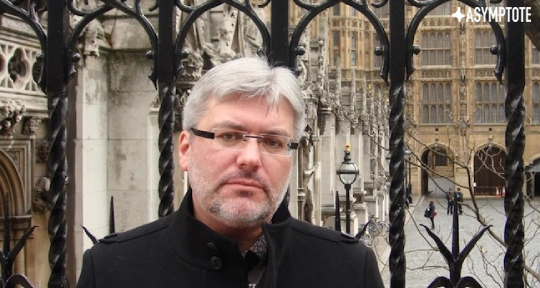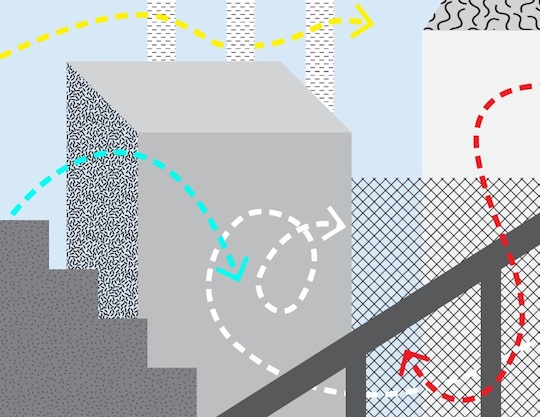As the COVID-19 pandemic rewrites our realities, so do writers around the world take up their instruments to render the new world into text. In the following essay, José Vergara discusses the newest work by Russian author Eugene Vodolazkin, Sister of the Four, a existentialist-absurdist play that cohere’s the writer’s familiarity with the pandemic as subject, and the unprecedented facts of what we face today.
This isn’t Eugene Vodolazkin’s first pandemic.
The author’s initial encounter with a brutal, contagious disease took place across fifteenth-century Russia and Europe, the setting of his acclaimed novel Laurus (2012). In it, Vodolazkin chronicles the life of a healer turned holy fool, pilgrim, and monk; Arseny, as he is called in his youth, first loses his parents to the plague, and after training as an herbalist under his grandfather, falls in love with the sole survivor of a village that succumbed to the same pestilence. He then spends his days atoning for what he considers his sins by serving God and miraculously curing the ill. Disease is omnipresent, as Arseny walks fearlessly into plague-stricken homes to do his work. For him, as it is for his world, this illness is something entirely familiar—it is part of everyday life and has its own traditions of suffering, prayer, and death, imbuing the book with a well-suited sense of apocalypticism. Likewise serving as a plot device, it also draws Arseny into the orbit of various characters.
Now, in the midst of the COVID-19 crisis, the award-winning Russian author and specialist in Old Russian Literature has returned for another round. In doing so, he propels us into the era of corona-literature, a subgenre which is sure to spike in popularity in coming years. Published as the first in a series of four separate plays released weekly as audiobooks and e-books starting May 18, 2020, Sister of the Four is Vodolazkin’s attempt to make sense of our shared descent into this surreal existence. The play focuses on the titular four: a group of patients being treated for COVID-19 at the Albert Camus Hospital for Infectious Diseases, an imagined setting whose name immediately establishes Vodolazkin’s wry humor and self-awareness when it comes to literary precedents. The main characters consist of: a pizza delivery impresario with delusions of grandeur who goes by the name Funghi; a writer who has been having trouble producing original work for a decade and a half—totally unlike Vodolazkin with his impressive output; a man who claims to be a parliamentary deputy; and last, the chief doctor who eventually catches the virus himself and, in an apparent reference to Anton Chekhov’s “Ward No. 6,” becomes part of the very ward under his supervision. To round out the primary cast, the playwright includes a nurse, who, at the end of the first of two acts, announces herself to be Death incarnate.
This motley set of characters, the circumstances that bring them together, and plenty of alcohol contribute to Sister of the Four’s carnivalesque atmosphere, where the specter of death—both theoretical and apparently embodied in the Nurse—motivates discussions on everything from marriage and the qualities of a life worth living to pizza toppings. In the face of their impending end, the characters feel compelled to play a game of confessions, resulting in several reveals in the play’s latter half. All the while, the disorder of the day muddles the characters’ ability to communicate effectively. The addition of a French cognac at the end of act one doesn’t help, even if distracts the heroes from their condition. READ MORE…


